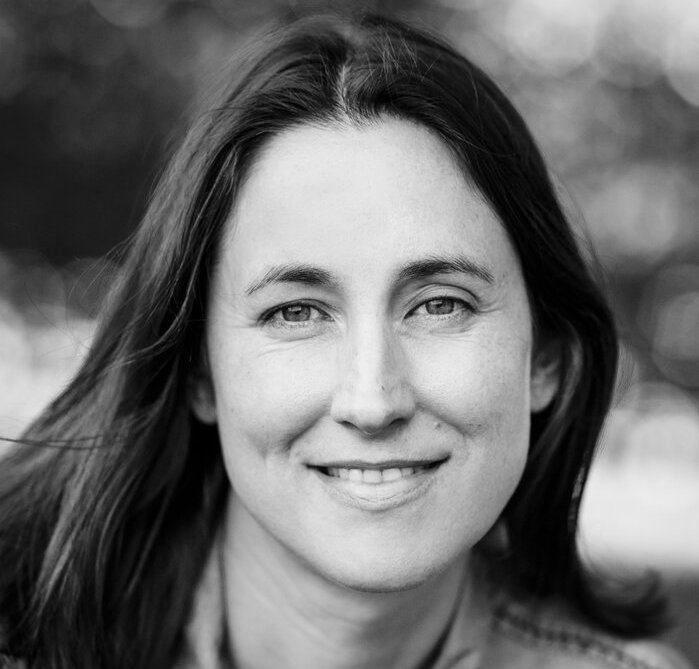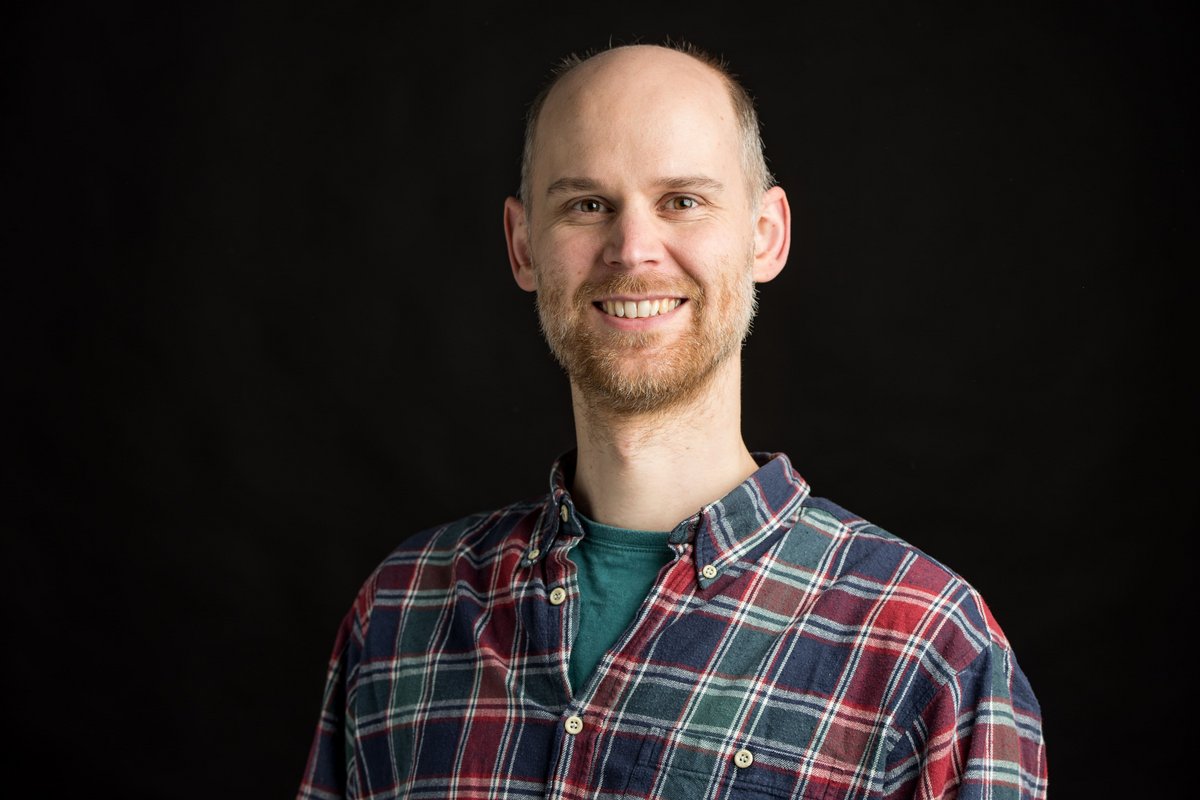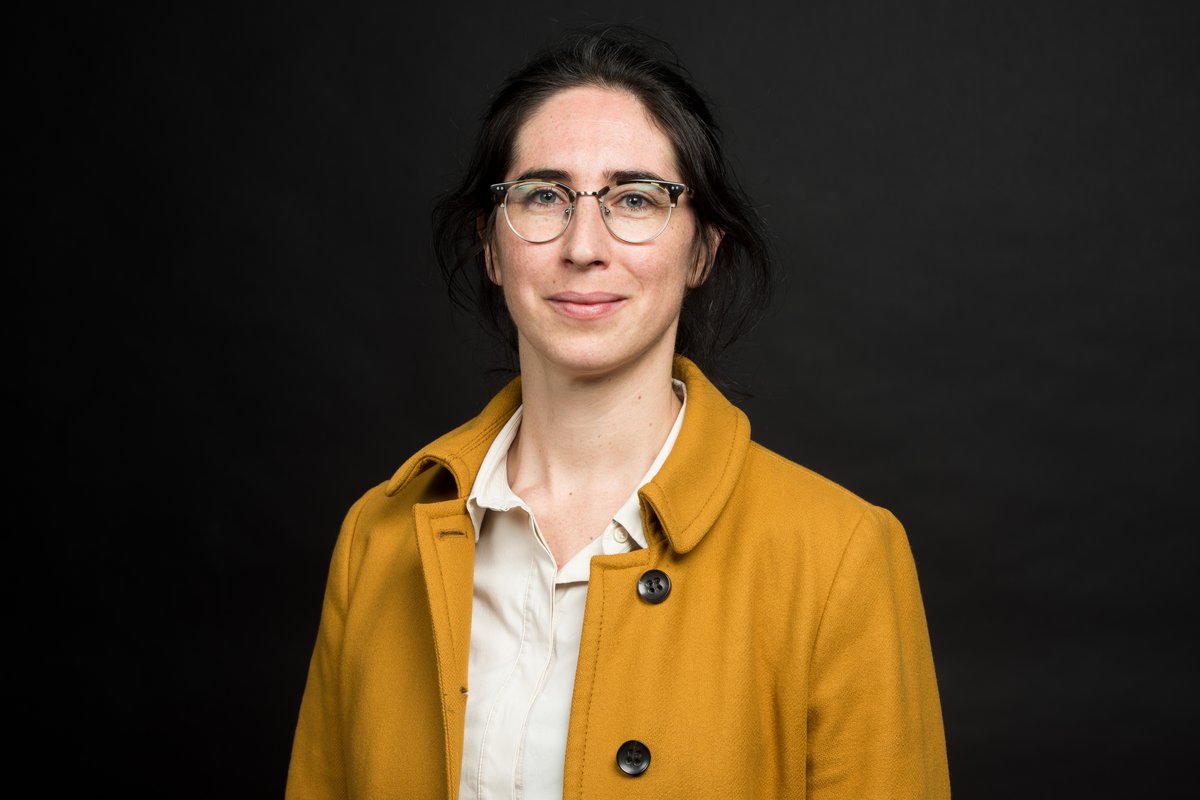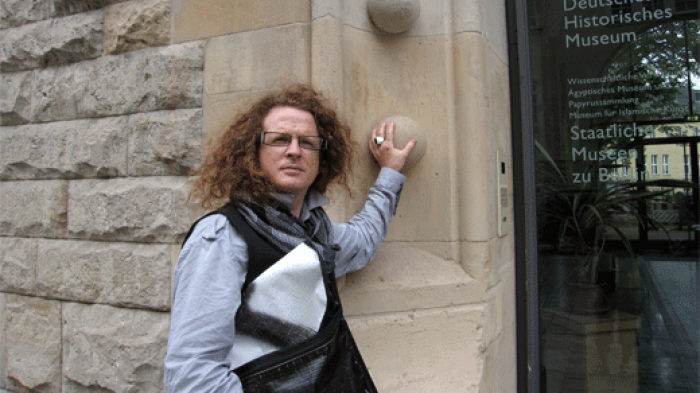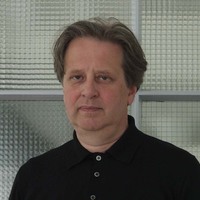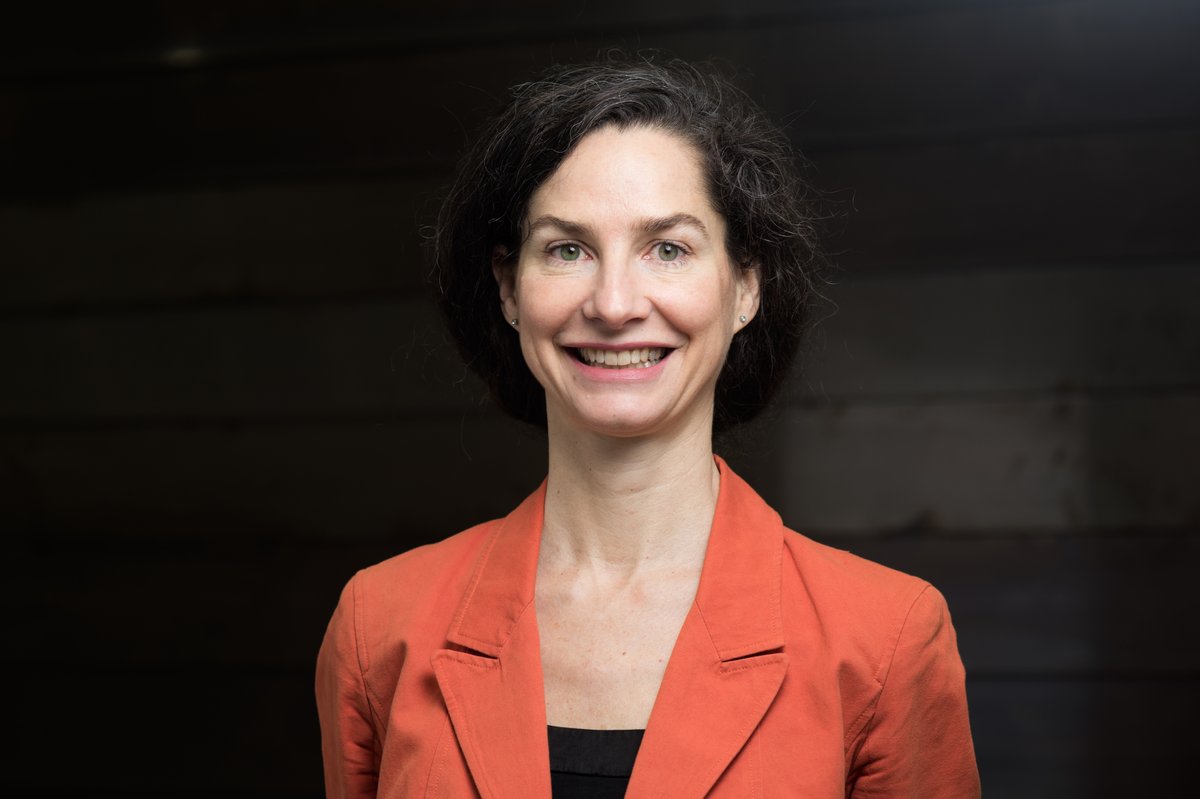Cooperations
Andrea Hiott, M.Sc.
Andrea Hiott holds degrees in philosophy and neuroscience from the University of Georgia in Athens (USA) and the Humboldt University in Berlin. She is also a researcher at the Northoff Lab at the University of Ottawa.
Contact
Andrea Hiott, M.Sc.
Dr. Ingmar Lippert
Where do the digital and the social worlds intersect? This question guides Ingmar Lippert’s research. He explores the politics situated at the heart of ‘digital society,’ analyzing the structures of and correlations between power, knowledge, technology and science.
Lippert's research focuses on data practices and the politics that guide them, engaging in the overlapping empirical domains of the environment and technology. Lippert questions how human agents can approach doing data well; he scrutinizes the values and commitments embedded in data management and governance; and he problematizes how knowledge is shaped by digital systems, including their bugs, frictive elements and seamless integrations.
Ingmar Lippert’s research interacts with sociologies of technology, the environment and (un)sustainability, and science and knowledge. His work draws upon Science and Technology Studies (STS) within a transdisciplinary mode that accounts for the work of data and knowledge practitioners.
As an Associate Professor at IT University of Copenhagen’sTechnologies in Practice Research Group, he co-led the project Socio-Cultural Carbon and conducted research on environmental monitoring/reporting, as well as on energy governance and autochthonous environmental knowledge. The latter brought him to BTU, where he focused on the intersection of knowledge, technology and coal. Earlier positions include an Assistant Professorship at IT University of Copenhagen and a Lectureship at the Tembusu College/National University of Singapore. He completed his PhD on Enacting Environments: An Ethnography of the Digitalisation and Naturalisation of Emissions in Sociology, working with Augsburg University and Lancaster University. As Short-Term Senior Fellow at the Käte Hamburger Kolleg: Cultures of Research, an International Center for Advanced Studies in Philosophy, Sociology, and History of Science and Technology at RWTH Aachen University, he conducted research into evocations of ethnographic methods in STS. As a senior visiting research fellow of the Museum für Naturkunde Berlin’s Bureau for troubles, Ingmar engaged with the infrastructure of environmental reporting within the European Union. As Research Fellow and Visitor he was repeatedly working from within the Institute of Advanced Studies of Science, Technology and Society (Graz) and of the Center for Interdisciplinary Research (ZiF, Bielefeld).
He contributes to national and international research and teaching community for instance within several associations, including in Germany the sociological association (DGS), the society for science and technology studies (GWTF) and its stsing network; in Europe he was EASST Council member for over 10 years till 2022; he was also member of the 4S Archiving Committee. In 2023, Ingmar Lippert joined the editorial board of the journal Science & Technology Studies. Between 2019-2022 he was acting as member of the climate change review panel of the Swedish Sustainability Research Council FORMAS, representing sociological and STS expertise; 2022 he was part of the international evaluation team of the Dutch Graduate and Research School WTMC. He ist advisory board member of the ERC CoG project Decoupling IT (2022-27).
Contact
Associate Professor Dr. Ingmar Lippert
Institut für Kulturanthropologie und Europäische Ethnologie
Goethe-Universität
Norbert-Wollheim-Platz 1
60629 Frankfurt am Main
www.ingli.de
Office Hours
Only by appointment
Research Fields
Technology as Epistemic Culture
‘Digital Society’ (Databases; Intersections of Small and Big Data; Qualculation and Data Practices; Monitoring and Accountability)
Scoiological Theories to Trouble Technologies/Knowledges (Practice Theories, Specifically Pierre Bourdieu’s Work; Feminist Analytics of Technoscience; (Post)Actor-Network Theory, Specifically Ontological and Ontic Politics; Performativity of Economics; Discourse and Dispositif Analyses)
Social Science Methods as Technology (Methodography; Workplace Ethnography; Experimental Digital Methods)
Environmental Anthropology
(Un)Sustainability, Environmental Management and Governance
Environmental Monitoring and Reporting Carbon
Environment as Infrastructure
Carbon, CO2e, Coal
Biodiversity and Plants
Ecosystem Services and Natural Capital
Jun. Prof. Dr. Suzana Alpsancar
Suzana Alpsancar studied Philosophy, Linguistics and History in Chemnitz and Alicante. From 2007 to 2010, she served as a member of the DFG-funded interdisciplinary Research Training Group ‘Topology of Technology’ on a doctoral-stipend in TU Darmstadt. In 2010, she completed her PhD there. Alpsancar's dissertation critically reconstructed the technical visions of Vilém Flusser and Mark Weiser (Ubicomp). After her dissertation, she worked as a postdoctoral researcher at Darmstadt.
During her postdoc, Alpsancar served as a Visiting Fellow at Yale University under Prof. Dr. Seyla Benhabib und Prof. Dr. Karsten Harries. Alpsancar also, during this period, worked on a BMBF-funded Cooperated Research Project ‘The Language of Biofacts’ („Die Sprache der Biofakte“) at TU Braunschweig in Brunswick, and a BMBF Project ‘Developing the Interdisciplinary’ („KIVA VI: Entwicklung Interdisziplinarität“) at Darmstadt.
From October 2016 to September 2018, Alpsancar led courses as a Visiting Professor for ‘Philosophy of Technology’ at BTU Cottbus-Senftenberg. In October 2018, Alpsancar joined the Team of Technoscience Studies as an Assistant Professor.
Since 2008, Alpsancar has taught graduate and undergraduate courses in philosophy for students from various disciplines. She has taught in Darmstadt, Kaiserslautern, Witten/Herdecke, Brunswick and Cottbus. In addition to basic courses, she focuses on the normative reflection of technical, and especially digital, challenges. Her research interests include the history and theory of technological determinism, ethics of technology and the history and theory of technology assessment.
Contact
Jun. Prof. Dr. Suzana Alpsancar
Applied Ethics, Philosophy and Ethics of Technology, particularly of digital worlds, Technology Assessment
Paderborn University
Faculty of Arts and Humanities
E-Mail: suzana.alpsancar@uni-paderborn.de
Tel.: +49 5251 602432
Research Fields
Technology as Epistemic Culture
- Computerization of Cultures of Knowledge
Ethico-political Thinking
- History and Theory of Technological Determinism
- Ethics and Politics of Technoscientific Developments
(e.g. Ubiquitous Computing, Ambient-Assisted-Living, Self-Driving-Cars)
Future Narratives
- Theory and History of Technology Assesment
- Computing-Visions (esp. Vilém Flusser, Mark Weiser)
Dr. phil. Baruch Gottlieb
Dr. phil. Baruch Gottlieb, trained as a filmmaker at Concordia University Montreal, has a doctorate in digital aesthetics from the University of Arts Berlin. From 2005-2008 he was professor of Media Art at Yonsei University Graduate School for Communication and Arts in Seoul, Korea. He is active member of the Telekommunisten artist collective and author of ‘Gratitude for Technology’ (Atropos 2009), ‘A Political Economy of the Smallest Things’ (Atropos 2016), and ‘Digital Materialism’ (Emerald 2018) he currently lectures in philosophy of digital art at the University of Arts Berlin.
He is curator of the touring exhibition series ‘Flusser and the Arts’ based on the philosophical writings of Vilém Flusser, which has been presented at ZKM, Karlsruhe, AdK Berlin, West den Haag and GAMU Prague and ‘FEEDBACK: Marshall McLuhan and the Arts’ which has been presented at West den Haag and 34th Chaos Communication Congress, Leipzig, Berlin, ZKM Karlsruhe, Detroit/Windsor, with further instances in Paris, and Toronto. He writes extensively on digital media, digital archiving, generative and interactive processes, digital media for public space and on social and political aspects of networked media. Beside his work in Cottbus he lectures in digital aesthetics at UdK Berlin and at HfG Karlsruhe and is artistic researcher at West Den Haag.
Kontakt
Dr. phil. Baruch Gottlieb
Studium Generale
University of Art (UdK), Berlin
curator | special projects
West Den Haag
c: +49 176 6682 8195
b.e.gottlieb(at)gmail.com (private)
Office Hours
Only by appointment
Dr. C.L. (Chunglin) Kwa
Dr. Chunglin Kwa worked as a lecturer and researcher of the Amsterdam Institute for Social Science Research (AISSR) at the University of Amsterdam. He was faculty fellow at Harvard University, 1999–2000. Being part of the International Geosphere-Biosphere Programme, his work has focused on the history of ecology and on the general history of science. During his PhD studies, he researched and published about the history of US systems ecology.
Chunglin Kwa’s research activities deal with vizualizing landscapes, as well as global change, inderdisciplinarity and postmodernity from a scientific perspective. He is the author of “Styles of Knowing: A History of Science from Ancient Times to the Present” (Pittsburgh 2011), “What is truth?” (Amsterdam 2018), and several other scientific papers, publications and journal articles about epistemology and history of landscapes.
Kontakt
Dr. Cheryce von Xylander
Cheryce von Xylander is an American scientist who has worked worked in the USA, England, France, Australia and Russia. She studied ‘Symbolic Systems’ at Stanford University, an internationally renowned and transdisciplinary programme with a focus on artificial intelligence. The Bachelor of Science programme also included Logic, Software Engineering, Cognitive Linguistics and ‘Philosophy of Mind’.
Von Xylander thereafter studied History and Philosophy of Science at Cambridge University (UK) and the University of Chicago, where she earned her Master of Philosophy and Ph.D. respectively. Cheryce von Xylander subsequently worked in Munich as a research associate at the Deutsches Museum von Meisterwerken der Naturwissenschaft und Technik and at the Max Planck Institute for Cognitive and Neurosciences, as well as for the History of Science and Educational Research in Berlin. Before she began her work at the BTU Cottbus-Senftenberg in the field of General Technology Research, she taught philosophy at TU Darmstadt and held the ‘Rudolf Arnheim Guest Professorship’ at the Humboldt-Universität zu Berlin’s Institute for Art and Image History.
Her interdisciplinary research interests include Immanuel Kant, or particularly how he is received globally and his contemporary relevance as an Enlightenment philosopher. In addition, she sees herself as an Internet philosopher dedicated to the transformation of culture and society on the basis of its comprehensive digitalization.
Cheryce von Xylander is currently a visiting professor at Leuphana University Lüneburg in the Faculty of Cultural Sciences of the Institute for Philosophy and Art Studies.
Kontakt
Dr. Cheryce von Xylander
Universitätsallee 1, C5.402
21335 Lüneburg
cheryce.von_xylander(at)leuphana.de
https://www.leuphana.de/en/institutes/ipk/members/cheryce-von-xylander.html
Research Interests
- Kant’s Cognitive Paradigm and its Digital Realisation
- Heuristical Techniques
- Cultural Dispositions and Anthropomorphic Education according to Kant
- Digital Anthropology and Digital Curating
- Modern and Contemporary Art
- Historiography

